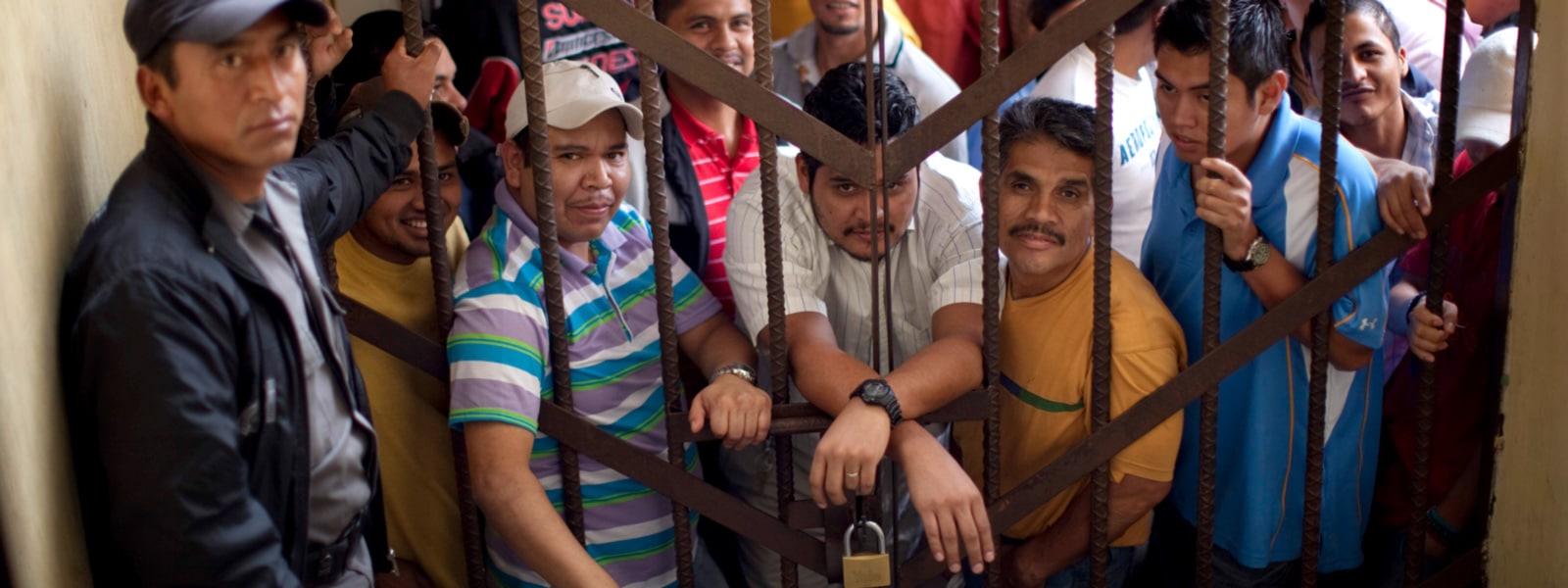Widespread fear of street gangs in the Northern Triangle countries is being exploited by copycat groups who pose as gang members to extort victims. These actors are now an important part of the criminal problem.
It was 2am when Eliza’s husband received the call. On his way to the parking lot where the couple stowed their garbage trucks, he answered his phone and heard the same threats which so many other Guatemalans have heard.
“They told him they knew where we lived, they knew how many kids we had,” Eliza* said, recalling the December 2014 incident. “They knew how we worked, where we kept the trucks, who were the people working with us.”
*This article is part of an investigation on various types of extortion in Central America and was carried out by InSight Crime as a joint project with the Global Initiative. See the rest of the series here.
This was the first of many times that Eliza and her husband would turn to Guatemala’s anti-gang unit for help.
“The police started investigating and found out that the person behind this was one of our very own employees,” Eliza explained.
A man who worked as a garbage collector on one of their trucks was operating as a copycat — passing himself off as a gang member to dupe the couple into paying.
Fear and Impunity
“[Extortion] is an offense associated with the gangs, but that’s not necessarily always what happens,” noted Carmen Rosa de Leon, the director of Guatemala’s Institute for the Teaching of Sustainable Development (Instituto de Enseñanza para el Desarrollo Sostenible — IEPADES). She believes that up to a third of extortion attempts in the country could be the work of copycats.
“It’s a crime that is easy to imitate … and based on impunity and fear.”
Data from Guatemala’s Attorney General’s Office shows that nearly 8,400 extortion complaints were filed in 2017, but less than 700 convictions were reached. Amid this impunity, fear of reprisals for not paying gang extortion is a huge concern among victims.
“Unfortunately, [extortion] is a crime that is easy to commit. At the end of the day, all you need is a phone to call people and say, ‘I’m a gang member’ … people panic and deposit sums of money,” said Emma Flores, Guatemala’s anti-extortion prosecutor. Copycats even imitate the way gang members speak and their vocabulary, she explained.
The phenomenon has become widespread enough to impact Central America’s extortion dynamics.
Guatemala’s former interior minister Francisco Rivera believes one in every four extortion attempts to be the work of copycats. In El Salvador, high ranking police officers posited that these criminal chancers could be responsible for between 40 and 70 percent of all extortion attempts.
Reflecting the scale of extortion in the sub region, the phenomenon has gone well beyond individuals looking to make a quick buck. It now feeds entire criminal structures.
On August 8, 2018, Guatemalan authorities launched 36 coordinated operations to bring down a copycat organization that was composed of 30 individuals and that spanned across six of the country’s 22 departments. Less than six months earlier, another group of 30 gang imitators was being dismantled, giving credence to the idea that copycats are responsible for an important proportion of Guatemala’s extortion.
Copycat cases even point to frequent instances of kin extorting kin throughout the sub region, underlining the normalization of the presence of extortion in Northern Triangle countries and suggesting that it is now as much a social and cultural problem as it is a criminal one.
An Empty Threat?
These criminal chancers operate differently to the gangs, however. They tend to avoid physically meeting with the victim, which could give them away. And rather than setting up systematic extortion schemes of relatively low payments as gangs do, imitators make multiple phone calls and demand a large, one-off payment from potential victims, waiting for someone to fall into the trap. While copycat groups exploit gang terror, they do not share their brutality. Officials say they will rapidly abandon the extortion attempt if the victim resists, and rarely carry out their threats to kill.
“That’s the starting point for us to know whether it’s an imitator,” said Francisco Cisneros, head of the homicide department at Guatemala’s Special Division for Criminal Investigation (División Especializada en Investigación Criminal – DEIC).
“Because a gang member will bring over a phone, issue the threat, and there won’t be any negotiations [if the victim doesn’t pay], it will end with an attempt on their life.”
Flores concurred.
“[Copycat groups] are characterized by the fact that they don’t have the operational capacity to harm the victim,” she said.
Four years later, Eliza and her husband are now paying a monthly 1,000 quetzales (roughly $130) per truck in extortion fees. A street gang has gained access to the list of garbage truck owners in the city, and unlike copycats, is ready to punish any resistant owner. None are willing to take the risk.
*The victim’s name has been changed for security reasons.
Top Image: AP

